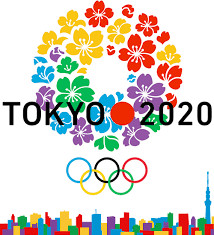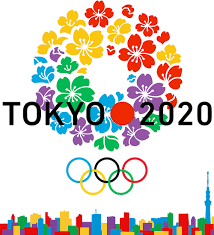
Payment to a notorious account linked to the son of the disgraced former world athletics chief Lamine Diack was apparently made during the race to host the 2020 Games by the successful Tokyo Olympic bid team to the tune of a seven-figure amount reported The Guardian.
Pressure on the International Olympic Committee to investigate properly links between Diack’s regime and the bidding race for its flagship event will increase as the alleged payment of around €1.3m (£1.03m) is now believed to be under scrutiny by French police. Serious questions about Tokyo’s winning bid are also raised by this revelation.
IOC, which has set great store by the probity of its bidding process since wholesale reforms following the Salt Lake City bribery scandal which erupted before the winter Games of 2002, would be hugely embarrassed by any suggestion that votes could have been bought by Tokyo.
Diack Sr resigned in November last year following allegations he had accepted more than €1m in bribes to cover up positive Russian doping tests. Prior to that he was an IOC member between 1999 and 2013 and became an honorary member in 2014. While prosecutors in France investigate corruption at athletics’ governing body, he is now prevented from leaving the country.
The French investigation had been widened to include the bidding races for the 2016 and 2020 Olympics, the media had reported in March.
Payments totalling around €1.3m apparently sent from the Tokyo 2020 bid, or those acting on their behalf, directly to the Black Tidings bank account in Singapore are now under the scanner among the transactions that are under suspicion. Papa Massata Diack, the son of Lamine Diack who was employed by the International Association of Athletics Federations as a marketing consultant has a direct link to the account.
In 2013 when Tokyo triumphed over fellow bidders Istanbul and Madrid, Lamine Diack, the longstanding former IAAF president, was still an influential IOC member. At the heart of the allegations of institutionalised corruption at the IAAF over more than a decade is the secret Black Tidings account.
How Diack and his sons, Papa Massata and Khalil, who were employed as marketing consultants, joined up with the lawyer Habib Cissé to function “as an informal illegitimate governance structure” of the IAAF was revealed by an independent report commissioned by the World Anti-Doping Association and published in January.
Papa Massata Diack had appeared to request $5 million from Quatar at a time when it was bidding for the 2017 world athletics championships and the 2020 Olympics under the guise of seeking sponsorship deals in developing markets under an agreement with marketing partner Dentsu, The Guardian had earlier revealed.
However at a time when president Thomas Bach has repeatedly held it up as an example of probity to other troubled sporting organisations including Fifa and the IAAF, the latest revelations are perhaps the most troubling yet for the IOC and will send shockwaves through the Olympic movement.
The Japanese Olympic Committee – which oversaw the bid – said its press team was away on business for a week and was unable to respond when The Guardian asked about the alleged payment, believed to have been made in more than one tranche before and after the Games were secure.
(Source:www.theguardian.com)
Pressure on the International Olympic Committee to investigate properly links between Diack’s regime and the bidding race for its flagship event will increase as the alleged payment of around €1.3m (£1.03m) is now believed to be under scrutiny by French police. Serious questions about Tokyo’s winning bid are also raised by this revelation.
IOC, which has set great store by the probity of its bidding process since wholesale reforms following the Salt Lake City bribery scandal which erupted before the winter Games of 2002, would be hugely embarrassed by any suggestion that votes could have been bought by Tokyo.
Diack Sr resigned in November last year following allegations he had accepted more than €1m in bribes to cover up positive Russian doping tests. Prior to that he was an IOC member between 1999 and 2013 and became an honorary member in 2014. While prosecutors in France investigate corruption at athletics’ governing body, he is now prevented from leaving the country.
The French investigation had been widened to include the bidding races for the 2016 and 2020 Olympics, the media had reported in March.
Payments totalling around €1.3m apparently sent from the Tokyo 2020 bid, or those acting on their behalf, directly to the Black Tidings bank account in Singapore are now under the scanner among the transactions that are under suspicion. Papa Massata Diack, the son of Lamine Diack who was employed by the International Association of Athletics Federations as a marketing consultant has a direct link to the account.
In 2013 when Tokyo triumphed over fellow bidders Istanbul and Madrid, Lamine Diack, the longstanding former IAAF president, was still an influential IOC member. At the heart of the allegations of institutionalised corruption at the IAAF over more than a decade is the secret Black Tidings account.
How Diack and his sons, Papa Massata and Khalil, who were employed as marketing consultants, joined up with the lawyer Habib Cissé to function “as an informal illegitimate governance structure” of the IAAF was revealed by an independent report commissioned by the World Anti-Doping Association and published in January.
Papa Massata Diack had appeared to request $5 million from Quatar at a time when it was bidding for the 2017 world athletics championships and the 2020 Olympics under the guise of seeking sponsorship deals in developing markets under an agreement with marketing partner Dentsu, The Guardian had earlier revealed.
However at a time when president Thomas Bach has repeatedly held it up as an example of probity to other troubled sporting organisations including Fifa and the IAAF, the latest revelations are perhaps the most troubling yet for the IOC and will send shockwaves through the Olympic movement.
The Japanese Olympic Committee – which oversaw the bid – said its press team was away on business for a week and was unable to respond when The Guardian asked about the alleged payment, believed to have been made in more than one tranche before and after the Games were secure.
(Source:www.theguardian.com)














